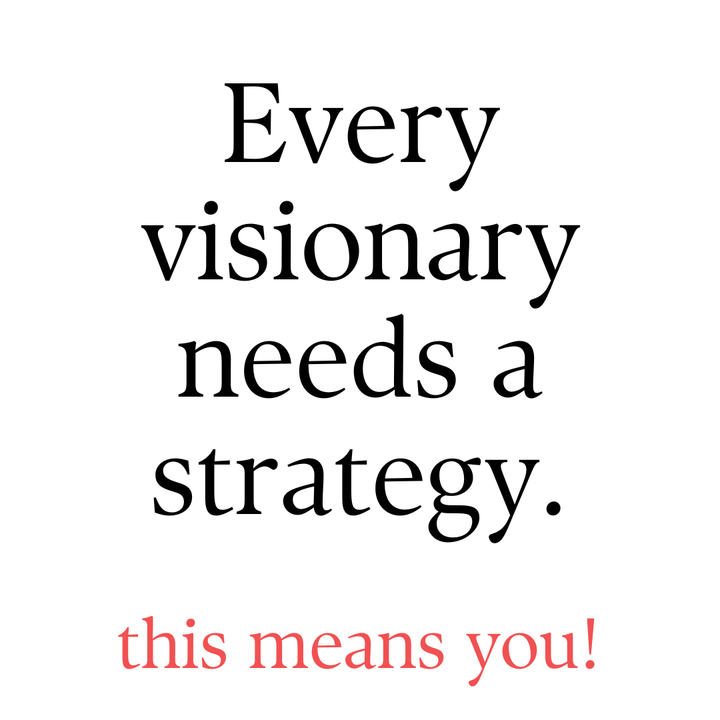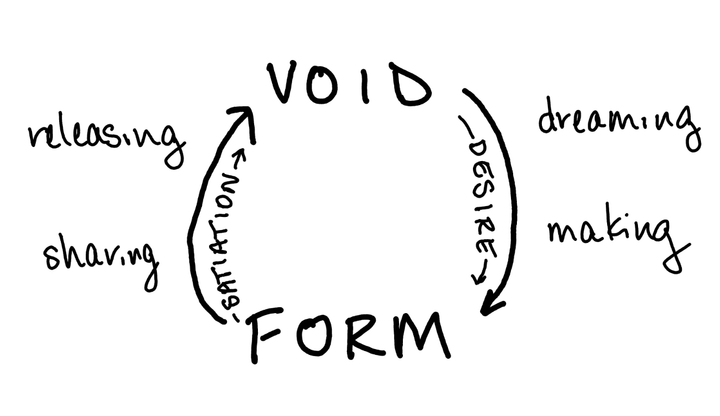“The detritus of our validation-seeking”
Tara McMullin’s post on overcommitting and the validation spiral was exactly what I needed to read today.
She makes wonderful use of simple diagrams to show how we begin to overcommit, and then we don’t have enough resources to fully meet our existing commitments (disappointing ourselves and others), which leads us to take on yet more commitments to try to feel worthy or successful, spreading our resources even thinner.
She writes:
We say 'yes' too many times and fill our lives with the detritus of our validation-seeking.
The detritus of our validation-seeking!
Yesterday, I was so overwhelmed between work and childcare that I put my phone on do not disturb and didn’t touch it all day. This morning, I cried with anxiety because I didn’t want to see what was awaiting me.
I didn’t understand why I couldn’t “just turn it back on.”
I didn’t understand why I couldn’t “just move on and let today be a new day.”
I didn’t understand why I couldn’t have just left it on in the first place.
It made me feel like something must be deeply, deeply wrong with me.
Long before I had kids, I read somewhere that you can’t expect not to drop any balls, but that the trick is that some balls are rubber and some are glass. Don’t drop the glass ones.
What if I stopped trying to believe I can avoid dropping any balls? What if I celebrated turning off my phone as the right choice for me at the time?
What if I stopped imagining myself as someone dealing irresponsibly with unlimited resources of energy and attention, and instead recast myself as someone dealing responsibly with limited energy and attention, even if that means making some tough cuts to the attention budget?
I met with a colleague who will be working with me on the organization’s budget at my new job. I commented that everyone thinks budgets are just spreadsheets, but that there is often such an emotional component to dealing with money, even when it isn’t exactly your own. He said that when he works with grassroots organization leaders on budgeting, he doesn’t just teach standard budgeting skills, but he wants them to realize that “you’re already budgeting. You budget time, you might budget diapers or food. You know how to budget.”
I can see that I’ll have to budget my attention and time more closely these days, but I think I need to understand that I’m budgeting. I can’t do everything, and maybe I should celebrate when I don’t do something I thought I should do, as long as the things I did instead were higher up on the list.
I can’t do everything.
My former Zen teacher said that realizing this, and no longer trying to do everything, is where we find freedom. Oliver Burkeman’s popular book, Four Thousand Weeks, seems to express a similar point.
I suppose I thought I couldn’t do everything, but I suppose I thought that everything I truly thought I ought to be able to do, it would be a personal failing not to do.
I’ll have to rethink that.
I’ll tell myself: A tough budgetary choice, not a dropped ball. Not a personal failing.


